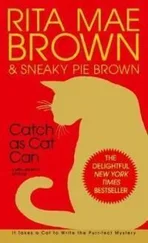I spent three weeks poring over the volumes in Wilcox’s office library, finding law a much easier, if somewhat duller, subject than I had assumed, and then with bated breath presented myself at the state bar examiner’s office. A law student acting as a clerk in the office leafed through my fake transcript, nodded approvingly, made a copy of the phony instrument and handed my original counterfeit back to me, along with an application to take the bar examination. While I was filling out the form, he thumbed through a calendar and called someone on the telephone.
“You can take the exam next Wednesday, if you think you’re ready,” he stated, and then grinned encouragingly. “It should be no hill at all for a Harvard stepper.”
His colloquialism might have been true in regard to an actual Ivy League law graduate. For me it was a mountain, eight hours of surmises, I hopes, maybes, confident conjecture and semieducated guesses.
I flunked.
To my astonishment, however, the notification that I had failed was attached to the test I had taken, which reflected the answers I had correctly given and the questions I had missed. Someone in the SBE’s office obviously liked me.
I went back to Wilcox’s office and camped in his library, concentrating on the sections of the test I had missed. Whenever possible Wilcox himself tutored me. After six weeks I felt I was ready to attempt the test a second time.
I blew it again. But again my test papers were returned to me, showing where I had succeeded and where I had failed. I was gaining. In fact, I was delighted at the number of legal questions I had answered correctly and I was determined to pass the examination on my final try.
I took the third examination seven weeks later and passed! Within two weeks I received a handsome certificate attesting to the fact that I had been admitted to the state bar and was licensed to practice law. I cracked up. I hadn’t even finished high school and had yet to step on a college campus, but I was a certified lawyer! However, I regarded my actual lack of academic qualifications merely a technicality, and in my four months of legal cramming I’d learned the law is full of technicalities. Technicalities are what screw up justice.
Wilcox fulfilled his promise. He arranged a job interview for me with the state attorney general, who, on Wilcox’s recommendation, hired me as an assistant. My salary was $12,800 annually.
I was assigned to the corporate law division, one of the AG’s civil departments. The division’s attorneys handled all the small claims made against the state, trespass-to-try-title suits, land-condemnation cases and various other real estate actions.
That is, most of them did. The senior assistant to whom I was assigned as an aide was Phillip Rigby, the haughty scion of an old and established local family. Rigby considered himself a southern aristocrat and I impinged on two of his strongest prejudices. I was a Yankee, but even worse, I was a Catholic Yankee! He relegated me to the role of “gopher”-go for coffee, go for this book or that book, go for anything he could think of for me to fetch. I was the highest-paid errand boy in the state. Rigby was a rednecked coprolite. Mine was an opinion shared by many of the other younger assistants, most of whom were natives themselves but surprisingly liberal in their views.
I was popular with the young bachelors in the division. I still had over $20,000 in my boodle and I spent it freely on the friends I made on the AG’s staff, treating them to dinners in fine restaurants, riverboat outings and evenings in posh night clubs.
I deliberately gave the impression that I was from a wealthy New York family without making any such direct claim. I lived in a swank apartment overlooking a lake, drove a leased Jaguar and accumulated a wardrobe worthy of a British duke. I wore a different suit to work each day of the week, partly because it pleased me but mostly because my extensive wardrobe seemed to irritate Rigby. He had three suits to my knowledge, one of which I was sure was a hand-me-down from his Confederate colonel grandfather. Rigby was also penurious.
If my grooming was resented by Rigby, it was approved by others. One day in court, during a short delay in the case at hand, the judge leaned forward on his bench and addressed me:
“Mr. Conrad, you may not contribute much in the way of legal expertise to the proceedings before this court, but you certainly add style, sir. You are the best-dressed gopher in Dixie, Counselor, and the court commends you.” It was a genuine tribute and I was pleased, but Rigby nearly had an apoplectic seizure.
Actually, I was satisfied with my errand-boy role. I had no real desire to actually try a case. There was too much danger that my basic lack of knowledge of the law would be exposed. And the work Rigby and I did was dull and uninteresting the majority of the time, a boresome task that I was content to let him handle. Occasionally he did throw me a bone, allowing me to present some minor land issue or make the opening argument in a given case, and I did enjoy those incidents and on the whole handled them without detriment to the law profession, I thought. Rigby was a highly competent lawyer, and I learned a lot sitting behind him, much more than I had gleaned from the law-books or the examinations.
Basically, my position was a haven, a lair not likely to be discovered by the hounds. When you’re looking for a criminal, you don’t often think to look for him on the attorney general’s staff of prosecutors, especially if you’re seeking a teen-age high school dropout.
Several weeks after I joined the AG’s staff, Diane was transferred to Dallas. I was only momentarily saddened at losing her. I was soon dating Gloria, the daughter of a high state official. Gloria was a lively, personable, vibrant girl, and if our relationship had a fault, it was that she was not exactly a bosom companion. But I was learning that a woman can also be delightful with her clothes on.
Gloria was a member of a staunch Methodist family and I often squired her to church, with the understanding that I was not a candidate for conversion. It was a gesture of interdenominational respect on my part that was appreciated by her parents, and actually I enjoyed it. In fact, I formed a close friendship with the young pastor of the church and he persuaded me to become involved in the church’s youth programs. I participated actively in building several children’s playgrounds in blighted areas of the city and served on several committees governing other urban youth projects. It was an odd pastime for a con man, but I had no real sense of hypocrisy. For the first time in my life I was giving unselfishly of myself, with no thought of any return, and it made me feel good.
A sinner toiling in the vineyards of the Church, however, no matter how worthy his labors, shouldn’t put in too much overtime. I accepted one too many committee appointments and the grapes began to sour.
There was a real Harvard graduate on this particular panel. Not just a Harvard graduate, but a Harvard Law graduate, and he was delighted to meet me. He was practically delirious with joy. I have since learned something about Harvard men. They’re like badgers. • They like to stick together in their own barrows. A lone badger is going to find another badger. A Harvard man in a strange area is going to find another Harvard man. And they’re going to talk about Harvard.
This one pounced on me immediately, with all the enthusiasm of Stanley encountering Livingstone in darkest Africa. When had I graduated? Who had my instructors been? Who were the girls I knew? To what club had I belonged? What pubs had I frequented? Who had my friends been?
I successfully fended him off that first night, with either inane answers or by ignoring him and concentrating on the committee business at hand. But thereafter he sought me out at every opportunity. He’d call me to have lunch. He’d drop by my office when he chanced to be in the area. He called me to invite me to parties or outings, to play golf or to take in some cultural event. And always he managed to steer the conversation around to Harvard. What buildings had I had classes in? Didn’t I know Professor So-and-So? Had I been acquainted with any of the old families of Cambridge? Harvard men around other Harvard men seem to be rather limited in their conversational topics.
Читать дальше











